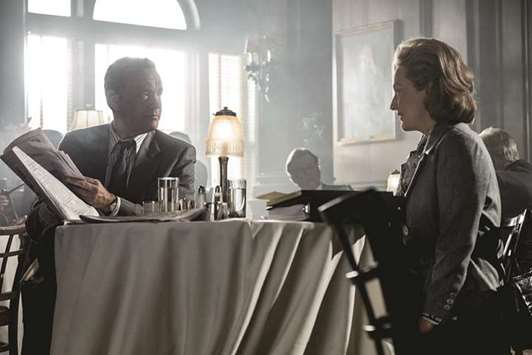The Post, essentially a two-hander, features two very fine old hands who have never before come together on screen: Meryl Streep, as Post publisher Katharine Graham, and Tom Hanks, as editor Ben Bradlee. These two characters are very different people: Graham is a Capitol Hill society matron who’s friendly with high-powered types like Secretary of Defense Robert S McNamara (Bruce Greenwood), while Bradlee is a genteel rascal who’s not above sending an intern to hang out in the offices of The New York Times. (Jason Robards won an Oscar for his crusty Bradlee in All the President’s Men, but Hanks puts his own mischievous stamp on the role.) The newshound and the businesswoman have coexisted for years without having to ruffle each other’s feathers. That is about to change.
When Nixon legally stops The Times from publishing the Pentagon Papers — a damning report suggesting years of official falsehoods about Vietnam — Post reporter Ben Bagdikian (a wry Bob Odenkirk) obtains his own copy. Graham and Bradlee must now decide what to do: Sit on the documents and protect the paper from legal action, or uphold the principles of a free press and publish? Screenwriters Liz Hannah and Josh Singer do a fine job of turning abstract issues into taut drama with tense phone calls, newsroom powwows and boardroom blowups.
The Post sometimes feels more elegant than urgent, more finely crafted than fervent. Still, the cast and crew deserve credit for making this film at a fast clip (it was reportedly finished just last month) in response to what’s going on right here and now. If the film’s real-life subjects were alive, they would surely approve. – Newsday/TNS)

